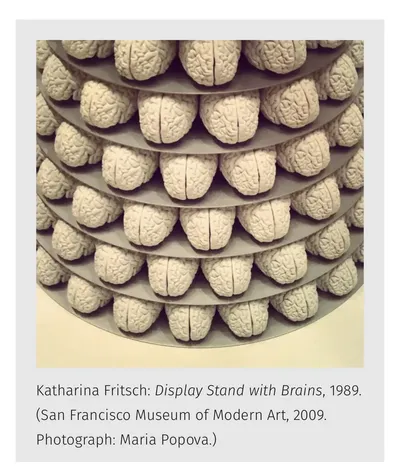The mind is its own place,” wrote Milton, “and in it self can make a Heav’n of Hell, a Hell of Heav’n.” But in an age when machines can simulate, with the sheer force of computation, for mind-things like poems, is the mind still a sovereign place? What heavenly and hellish creations can it alone make that no algorithm can reproduce or mimic?
I read in Milton’s words the intimation that the mind makes meaning, and meaning — which is different from information, different even from knowledge — is uncomputable. Meaning might be the last stalwart of human consciousness in the age of AI — the supreme existential yearning irreducible to computation, the great creative restlessness that foments all our poems and our passions.
The poetic neurologist Oliver Sacks (July 9, 1933–August 30, 2015) takes up these questions in his book ; Bright Air, Brilliant Fire: On The Matter Of The Mind but, like every great book it raises the question of consciousness, the nature of the mind, and what it means to be human.
Sacks laments that “beneath the enthusiasm about scientific developments, there is a certain thinness, a poverty and unreality compared to what we know of human nature, the complexity and density of the emotions we feel and of the thoughts we have.” In a sentiment reminding us how miraculous it is that a cold cosmos kindled consciousness at all, he writes:
We read excitedly of the latest chemical, computational, or quantum theory of mind, and then ask, “Is that all there is to it?”
With an eye to his own excitement upon first encountering Norbert Wiener’s pioneering cybernetics in the late 1940s, with its staggering insistence that “we are not stuff that abides, but patterns that perpetuate themselves,” and the generation of reckonings with logical automata and nerve nets that it inspired, he recounts thinking, like many did, that humanity was on “the verge of computer translation, perception, cognition; a brave new world in which ever more powerful computers would be able to mimic, and even take over, the chief functions of brain and mind.” And yet, as a neurologist who has devoted his life to the inner workings of enfleshed human minds, he cautions:
We must indeed be very cautious before we allow that any artifact is (except in a superficial sense) “mind-like” or “brainlike”… If we are to have a model or theory of mind as this actually occurs in living creatures in the world, it may have to be radically different from anything like a computational one. It will have to be grounded in biological reality, in the anatomical and developmental and functional details of the nervous system; and also in the inner life or mental life of the living creature, the play of its sensations and feelings and drives and intentions, its perception of objects and people and situations, and, in higher creatures at least, the ability to think abstractly and to share through language and culture the consciousness of others

